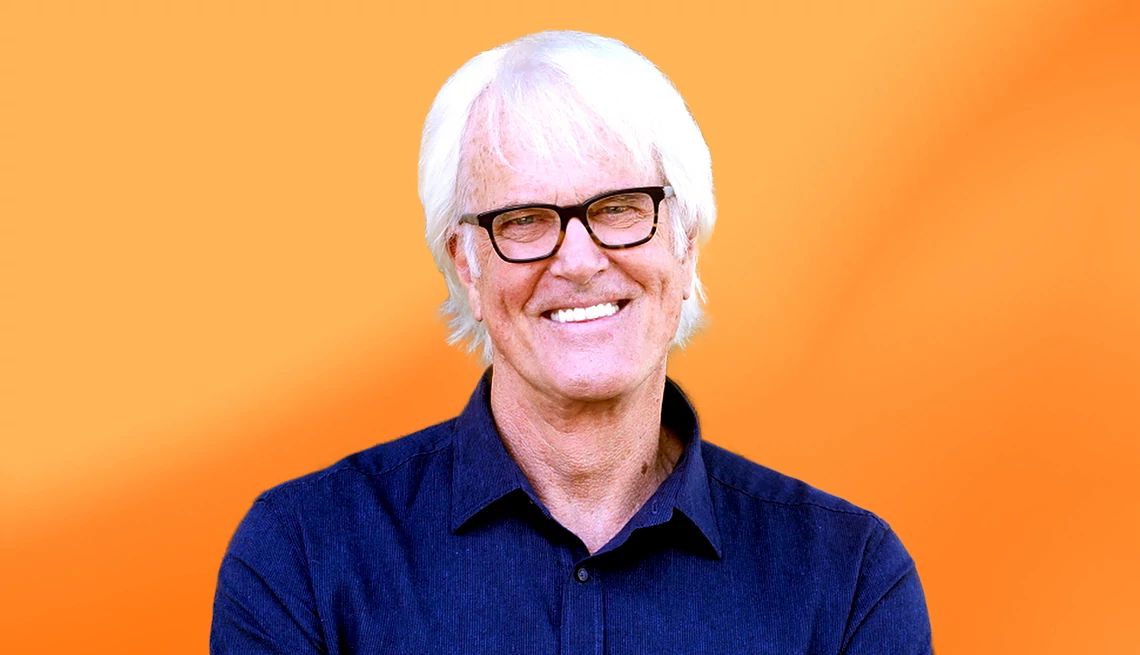AARP Hearing Center


Nine years ago, John Tesh, now 72, received devastating news: He was diagnosed with a rare form of prostate cancer and given 18 months to live. He persevered through treatment to beat the odds, but in 2020 the battle was back on — scans showed cancerous tumors in his pelvis and wrapped around internal organs. Today, after a second round of cancer treatment, the musician and former Entertainment Tonight cohost is feeling strong and keeping busy performing at concerts, hosting a syndicated radio show and teaching others to create their own music through his online piano lessons. In our interview, Tesh shares the lessons he’s learned fighting cancer, the secret to his long marriage to actress Connie Sellecca, 69, and how he feels about retiring.
This interview has been edited for length and clarity.
As a cancer survivor, what advice would you give people facing a diagnosis?
In the Bible, Romans 12: “Be transformed by the renewing of your mind” — that’s a big part of it for me. [Also] having an advocate — my wife was great at this. Connie always stood between me and the doctors. There’s days of depression, with cancer or any disease. You wake up at 2 o’clock in the morning — it’s a big time for somebody going through this kind of stuff — because you get to sleep, and then you wake up [in the middle of the night] and there’s the rumination. One of the things that I learned was I needed to replace the rumination that I had with other things. It’s not something that comes naturally, because the brain really wants to ruminate.
What did you replace the rumination with?
I first replaced it with a great book that I recommend to everybody: Viktor Frankl’s Man’s Search for Meaning. You can read it, you can listen to it, and it was understanding that suffering is a big part of just what happens on this earth, and understanding that you haven’t been singled out.
What did your cancer battle teach you?
I spent a lot of my life as a sports announcer, so I spent a lot of my time with athletes who were at the top of the game. A lot of those people, especially if you use downhill skiers as the example, are at the same level physically. But then you’ve always heard the trope that it’s the mental difference. In 1982, I was right by the start house at the world’s longest World Cup downhill, which is [in] Wengen, Switzerland. It’s like 2.8 miles. It’s a long time to be going 65 miles per hour. I’m up there the day before and Franz Klammer, the legendary Austrian ski racer — he didn’t speak any English — he’s up there and he’s in the start house. Everybody’s going on five or six runs just to memorize the course. Klammer had just done one run and he’s in the back, leaning up against the start house, and his coach is next to him. He’s got his helmet on, he’s got his goggles on, he has his poles in his hand and his skis on, he’s got his eyes closed. And he would lean way down, and then his poles would come back, and he would lean way forward, and you see the tips of his skis move while he was standing there. I asked the coach, who spoke English, “What’s going on?” He said, “Well, he’s going through the course in his mind…. He’s memorized the entire course, and he can see himself at the finish line, on the medal stand — not on the bronze or the silver, but on the gold medal stand.” Sure enough, he won that particular race. But years later, while I’m sitting in a chemo chair at MD Anderson [Cancer Center], it occurred to me that I needed to see myself well. I needed to see myself as my Aunt Imogene, 98 years old. I needed to be able to visualize that. I still use that.






























































You Might Also Like
Shaquille O’ Neal Is Reveling in His Second Act
NBA Hall of Famer is keeping busy as a sports analyst, DJ and host of the new game show ‘Lucky 13’
Kathie Lee Gifford Wants to ‘Set the Record Straight’
She dishes on new book ‘Herod & Mary,’ who’s participating in her documentary and her thoughts on retirement
Minnie Driver Transforms Into Queen Elizabeth I
Actress shares the love and discomfort of playing the character and how she’s refusing to let age define how she lives
Recommended for You